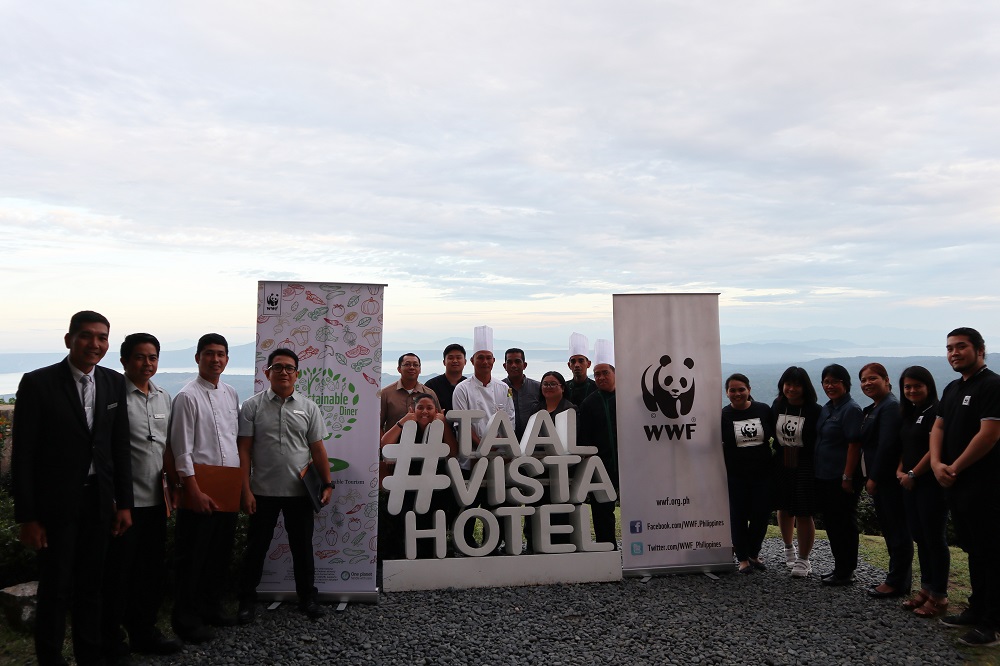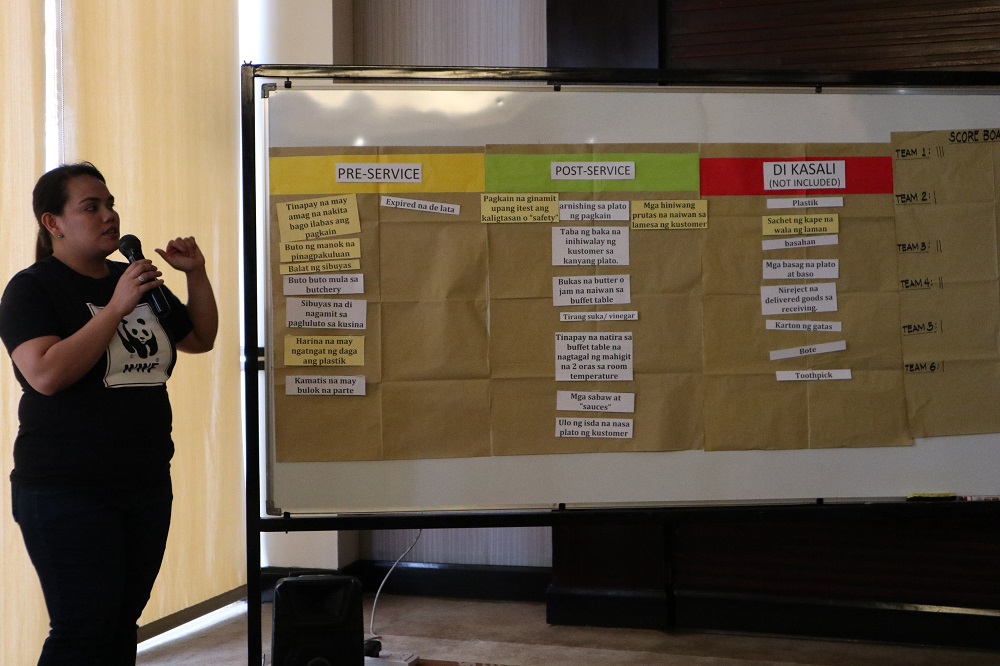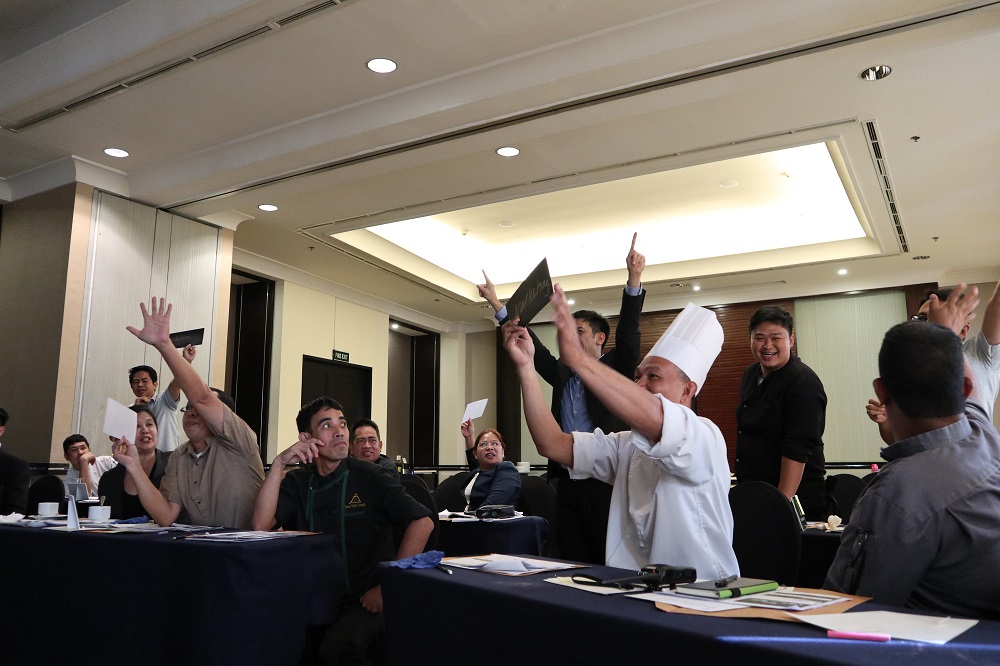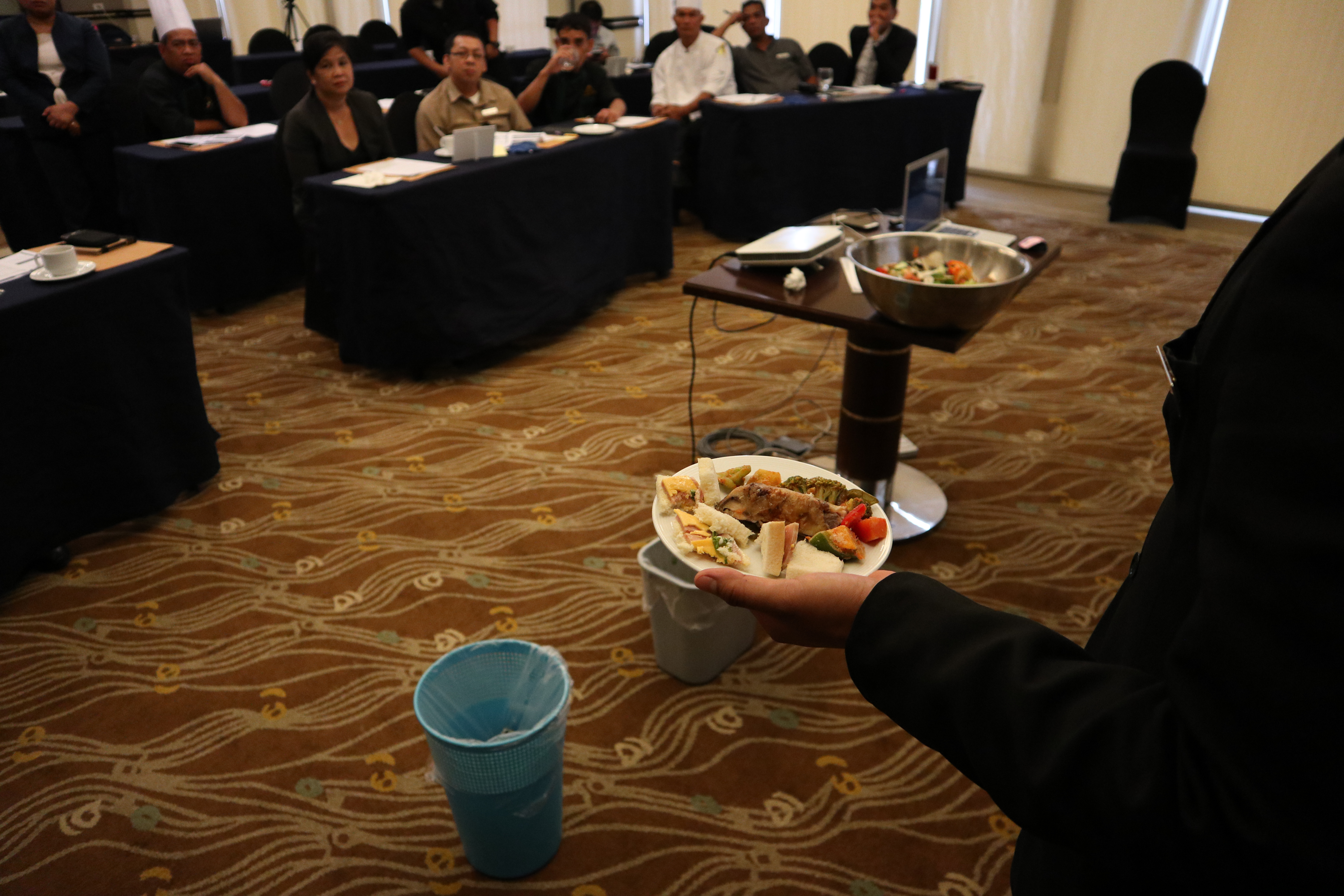Pilot Food Waste Management Training for Hotels with Taal Vista Hotel
June 2018
In celebration of the United Nations’ Sustainable Gastronomy Day, which emphasizes the role of gastronomy in ensuring sustainable food production and consumption, World Wide Fund for Nature (WWF) Philippines’ The Sustainable Diner: A Key Ingredient for Sustainable Tourism project conducted its first Food Waste Management Training for Hotels last June 18, 2018, in Taal Vista Hotel, Tagaytay City. Representatives from different departments - kitchen, purchasing, banquet and sales, marketing and communications, and many others - joined the project team for a half-day session, learning more about WWF’s food waste management tool for hotels and how they can immediately apply this to their daily operations.

The participants of the first Food Waste Measurement Training for hotels, in partnership with Taal Vista Hotel, along with several members of The Sustainable Diner project team. © Gabriel Villalon / WWF-Philippines
The overall goal is for partner companies and organizations to set- up a food waste management system. The initial study will run a four-month implementation divided into two main parts: food waste separation and food waste measurement. After gathering the necessary data, WWF shall provide possible interventions to reduce food waste produced in their facility. The food waste management initiative is originally led by WWF US, in partnership with the American Hotel and Lodging Association (AHLA), with the generous support from the Rockefeller Foundation.
Melody Melo-Rijk, WWF’s Project Manager for Sustainable Consumption and Production in the Philippines, opened the training by welcoming the participants and by giving a short introduction on The Sustainable Diner project, as well as the Food Waste Management training - its inception, previous applications, and reason for implementation, which is to bring together different representatives from the hospitality and food service sector to improve the implementation of strategies geared towards the reduction of food waste.

WWF Project Manager for Sustainable Consumption and Production in the Philippines, Melody Melo-Rijk, discussing what items should go into the pre-service and post-service bins that will be set up for the food waste measurement part of the initiative. © Gabriel Villalon / WWF-Philippines

Taal Vista Hotel employees showing their competitive side during one of the group games incorporated into the training session. © Gabriel Villalon / WWF-Philippines
Guided by The Sustainable Diner project team, Taal Vista Hotel will be conducting an initial data gathering process on the amount of food waste produced by two of their in-house restaurants, Veranda and Taza Fresh Table, as well as the banquet and events of the hotel, through the food waste measurement tool introduced by WWF. Definition of important terms, department designations, and division of responsibilities were established through fun, interactive games, where employees showed not only their hospitality know-how but also their competitive sides, creating a unique team building vibe all throughout the training.

Live simulation of the food waste segregation process, using actual food waste generated from Taal Vista Hotel’s two participating in-house restaurants. © Gabriel Villalon / WWF-Philippines
The training session served as a platform not only for Taal Vista Hotel’s employees to learn more about the measurement tool but also to discuss important decision points in the implementation of the initiative, in the presence of representatives from the entire hotel operations chain. Food waste production points within the chain of operations were identified, as well as important elements of the project, from the finalization of the Food Waste Management Task Force to the locations of the pre-service and post-service bins for segregation. Sample hotel food waste items were also brought for the food waste segregation simulation, and the training ended with the development of a concrete hotel-wide implementation plan.
The Sustainable Diner project is confident that together with its partners, it is very possible to reduce the food waste problem we are experiencing in the Philippines!
The Sustainable Diner project, under WWF-Philippines’ Sustainable Consumption and Production, is part of the International Climate Initiative (IKI). The Federal Ministry for the Environment, Nature Conservation, Building and Nuclear Safety (BMUB) supports this initiative on the basis of a decision adopted by the German Bundestag.
